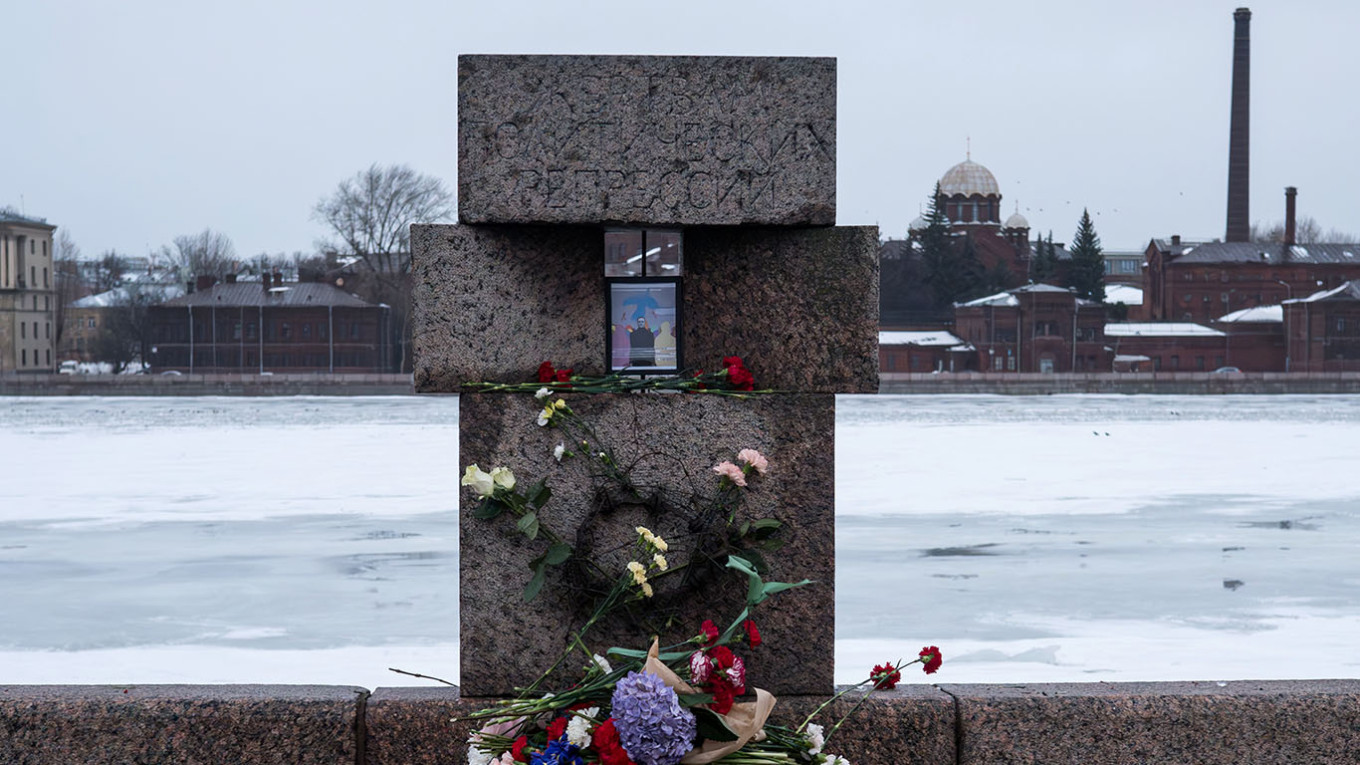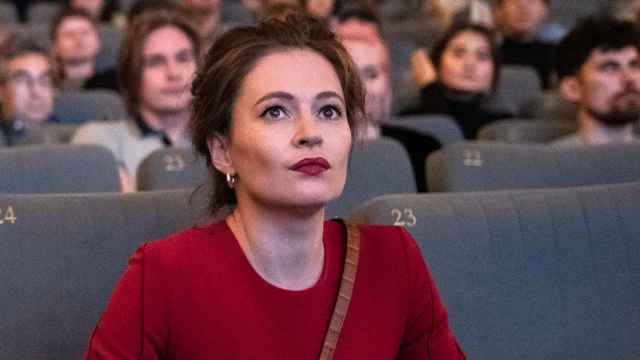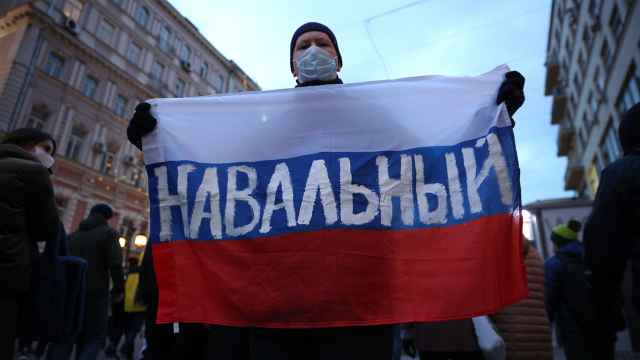In the year since Alexei Navalny’s death, his most important legacy, the Anti-Corruption Foundation (FBK), has been rocked by scandal and criticism. It was once the most influential and powerful organization in the Russian opposition, which the regime started to destroy in the wake of Navalny’s return to Russia in 2021 — possibly aiming to bring the homefront to heel in preparation for the full-scale invasion of Ukraine. Most of its leaders have relocated abroad, from where the FBK continues to investigate corruption and agitate Russians on social media.
Besides his ever-debated forays into nationalism, Navalny and his team always managed to evade major scandals. Those put forward by the Kremlin to persecute and discredit him always appeared shallow, if not completely bogus. But that all changed last fall when Maxim Katz released a devastating investigation. A former professional poker player turned successful political organizer, Katz shares a long history with Navalny’s team. He had a prominent role in Navalny’s 2013 run for Moscow mayor until he was fired. Katz claims that was because Navalny’s right-hand man, Leonid Volkov, harassed his then-girlfriend, while Navalny called him a “dishonest con man.” Since then, reciprocal acrimony has not abated. Rather, it has increased.
Now the FBK finds itself engulfed in the biggest scandal since its founding. The substance of Katz’s investigation is that the American branch of the FBK, the Anti-Corruption Foundation (ACF), had been registered by a former banker, Alexander Zheleznyak, who also served as its treasurer. At the same time, the ACF was funded by his former business associate, Sergey Leontiev. When the bankers fled Russia after they were charged with embezzling their customers’ money in wide-scale financial fraud, Katz said they used the FBK to launder their reputation abroad.
The defense offered by the FBK appears rather unconvincing. They claim that working with Zheleznyak was expedient in times of trouble — as if the FBK could not find better sponsors in the U.S. They question Katz’s political motives and also attempt to claim that the bankers did not steal any money. Katz's attack is certainly motivated by his long-standing competition with the FBK. But appeals to the letter of the law certainly do not fit well with what Navalny stood for. His fight for justice and truth was not limited to the strict enforcement of the law. He actually criticized Katz for claiming that using legal loopholes for tax optimization was just fine.
On the face of it, Leontyev and Zheleznyak’s business appears to be both illegal and immoral. It would probably be deemed so in the West too. Even if there was no quid pro quo exchanging reputation for money, the optics are terrible: Zheleznyak and Leontiev are precisely the kind of people that the FBK investigates. While it is likely that they were prosecuted because they supported Navalny, this does not mean they did not commit actual crimes in a financial system that the Central Bank has been trying hard to clean up. That the bankers are crooked and that their prosecution is politically motivated can be both true at the same time.
The scandal is all the more damning since the FBK had been warned. In 2023, it was revealed that Volkov had endorsed the removal of oligarch Mikhail Fridman from EU sanctions lists, reopening old speculations that Navalny was backed by Fridman’s Alfa group for which Vladimir Ashurkov, one of Navalny’s most prominent allies, used to work. The whole scandal was blamed on Volkov as he acted on his own–and took a short leave from the Anti-Corruption Foundation.
This time, the whole organization is involved in the scandal which has been significant enough to alienate some of the FBK’s oldest and most reliable sponsors. Among them is the entrepreneur and philanthropist Boris Zimin, who had bankrolled the Foundation since its inception.
So far, Yulia, Navalny’s widow, has remained above the fray. She admitted that working with Zheleznyak was a mistake, though denied that they did so to “launder” the banker’s reputation. It will fall upon her to restore the organization’s reputation, but it remains to be seen whether she, a newcomer to politics, can deliver.
This round of scandal also reflects a fundamental change in the treatment of Navalny’s organization by the opposition media. Navalny ran a tight-ship operation, one that controlled the FBK’s public image, enjoyed widespread support among liberal journalists and was quick to ostracize critical journalists.
Back then, Navalny, the FBK and the liberal press belonged to the same world, that of the tusovka, the Moscow-based “clique” that shared a common liberal outlook. But that was not all they shared. Even though Navalny was a lawyer and surrounded himself with lawyers, his work was that of an investigative journalist. He even claimed that he started his investigations on his blog because he found the Russian press lacking. In a word, Navalny and journalists were colleagues, as Oleg Kashin pointed out.
Manifestations of this closeness — or coziness — were many. But it has always been striking how little interest the Russian press showed in the most obscure pages of Navalny’s biography, like his business career in his youth. This is not to imply that it was outright criminal or even shady. But that no one really dug into what Navalny’s business actually was during the “wild 1990s” is intriguing.
With him gone, his organization has become just one group among others. His successors do not and will not enjoy the same tolerance from the opposition media. After a lengthy investigation on Zheleznyak and Leontyev by The Insider, an outlet that entertained close links with the Navalny team, the Sota website has now claimed that due to errors in the FBK’s donation systems, Russian law enforcement has access to the personal information of thousands of Russians who gave money to the FBK — an extremely serious crime, given the FBK’s designation as an “extremist” organization. Sota’s message — “The work of the leading force of the opposition must be closely analyzed” — could not be clearer: the FBK is now fair game.
Navalny and his team had always been fair game for the rest of the liberal opposition, as they never enjoyed unanimous support. Far from it. But with the clique scattered across the world and Navalny gone, divisions and criticisms have turned even more vicious. Relentless and unremitting, with daily skirmishes on X, the war between Katz and the FBK appears nowhere near a truce and has turned to attrition. In their latest counterattack, the FBK released an investigation into Katz’s wife and her alleged business dealings with Kremlin-connected structures.
Does this matter? Division is probably the default mode of the zero-sum game of politics. Only pressure from the base or the promise of victory can force unity upon power-hungry, self-interested politicians. When there are no elections and there is a scant chance to win, politics will turn evermore solipsistic. Exile can only reinforce this trend, as politics in exile is by definition politics without voters. Social media and the competition for scarce resources certainly do not help either. Despite appalled questions from Russians about whether such bickering is really worth it while Ukraine is being devastated, they are yet to be heard. In the meantime, there are indications that ordinary Russians are tired of the infighting. And on the ground, the rank and file of the Russian opposition is overwhelmed by depression and despondency — after all they had to go through, the death of Navalny has left them lonesome. Unity is the holy grail of Russian liberalism. But is anybody at the top really searching for it?
A Message from The Moscow Times:
Dear readers,
We are facing unprecedented challenges. Russia's Prosecutor General's Office has designated The Moscow Times as an "undesirable" organization, criminalizing our work and putting our staff at risk of prosecution. This follows our earlier unjust labeling as a "foreign agent."
These actions are direct attempts to silence independent journalism in Russia. The authorities claim our work "discredits the decisions of the Russian leadership." We see things differently: we strive to provide accurate, unbiased reporting on Russia.
We, the journalists of The Moscow Times, refuse to be silenced. But to continue our work, we need your help.
Your support, no matter how small, makes a world of difference. If you can, please support us monthly starting from just $2. It's quick to set up, and every contribution makes a significant impact.
By supporting The Moscow Times, you're defending open, independent journalism in the face of repression. Thank you for standing with us.
Remind me later.








